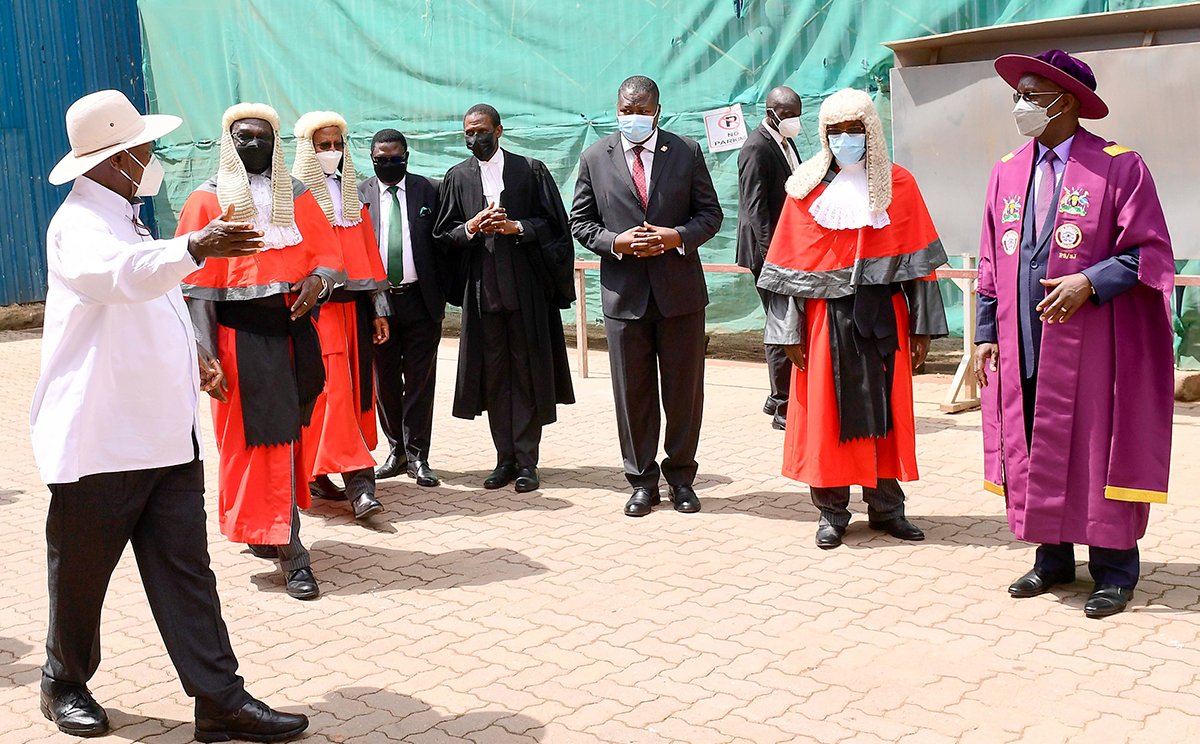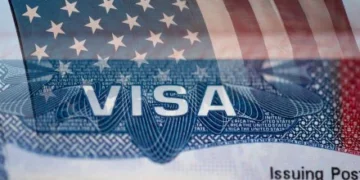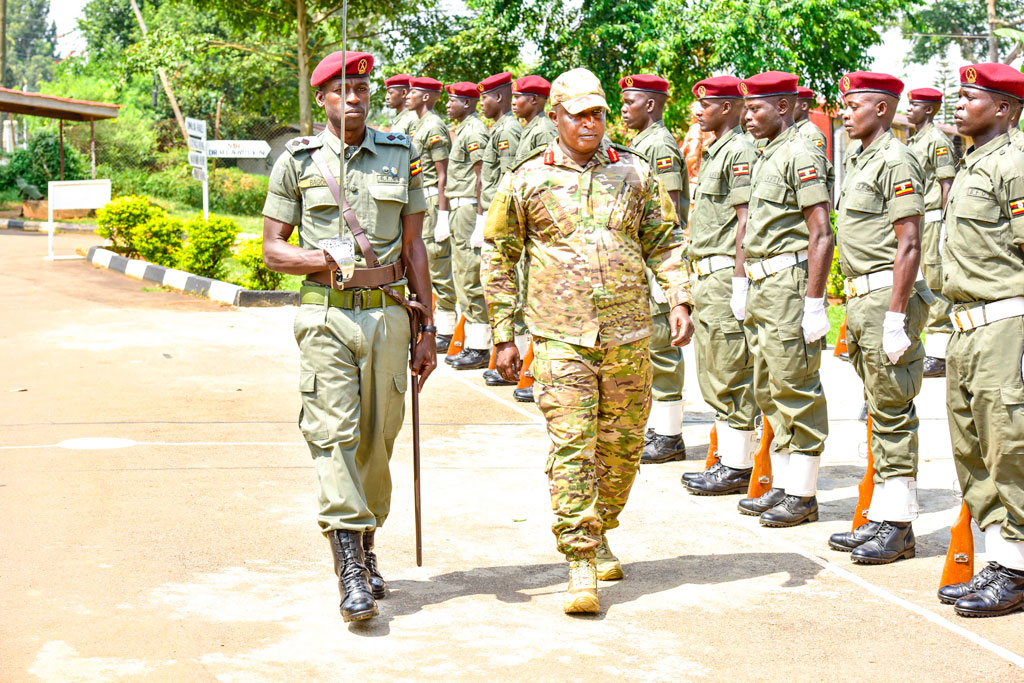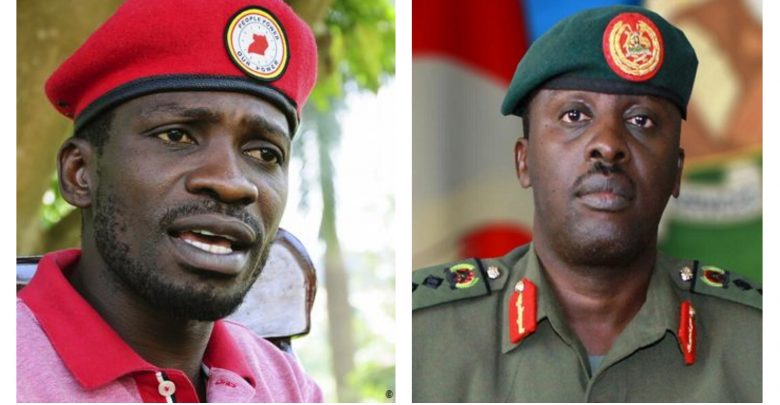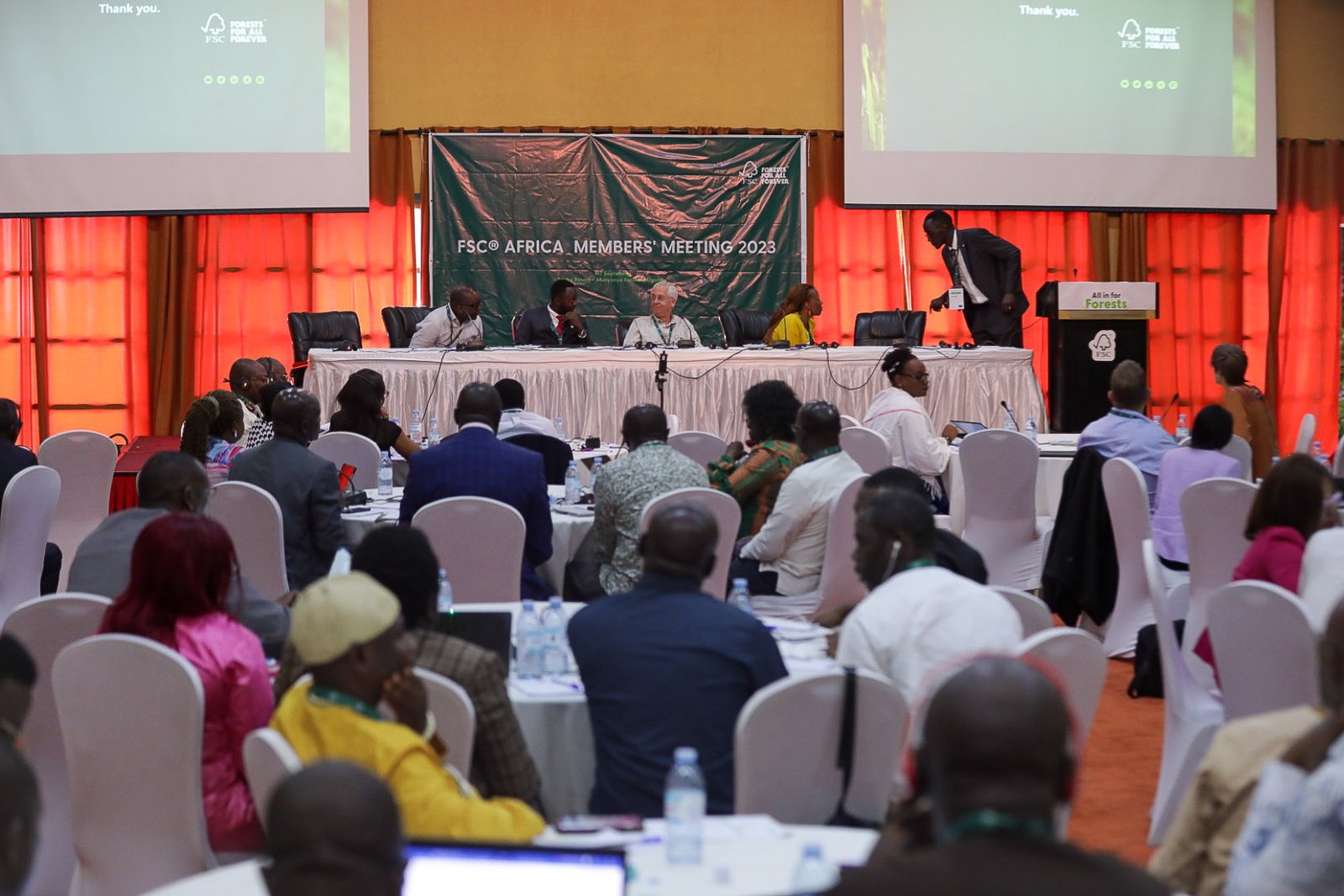A section of lawyers has disagreed with President Yoweri Kaguta Museveni over his statements questioning the independence of the Judiciary.
According to the lawyers, the judiciary’s independence should not be questioned or subject to the amendment because it is provided for under the constitution.
On Wednesday while speaking at the fifth Annual Memorial Lecture of the first Ugandan Chief Justice Benedicto Kiwanuka, Museveni said that there is a need to amend the prerequisite for the independence of the judiciary arguing that the concept is being abused by some judicial officers.
Museveni said that the Judiciary cannot be entirely independent of the other arms of the government and proposes that there should be a convergence of principles of justice because he sees a problem if it’s only the judiciary that is benefiting to the detriment of the citizens.
Museveni was responding to the Uganda Law Society President Bernard Oundo, who accused security personnel of not respecting and implementing court orders Oundo said such practices threaten the independence of the Judiciary, rule of law, and constitutionalism.
But some lawyers have described Museveni’s statements as unfortunate and done with the use of impunitive language.
Humphrey Tumwesigye, says that it is unfortunate that such a statement came from the President on a day the country is celebrating the life of a person who was murdered.
He says such statements are an indication that Uganda has not yet reached a level where every arm of government should be allowed to do its job without influence from the executive.
“Because when all other arms of government have failed the citizens, the last hope should be the judiciary that’s why its independence is very important.
But advocates and judges must be ready to make the Resident District Commissioners-RDCs respect court orders and anybody not respecting the court orders should be sued for contempt of court orders”, says Tumwesigye.
George Musisi says it is a sad commentary to have been made at a day when someone who wanted and respected constitutionalism and rule of law is being remembered.
He notes that the framers of the constitution did this well knowing different functions for all arms of government and the court was left as the neutral arbiter.
Musisi says that it would be wrong for the executive to start making decisions and disregarding rule of law and to show that it’s only one arm of government in fighting for the interests of the citizens.
Stanley Okecho says that the President needs to be lectured on the independence of the judiciary, the tenets, and its crucial role in a democracy.
He adds that it is unfortunate that he admitted that the executive has interfered with the enforcement of court orders.
“The executive is supposed to implement the law, parliament legislates, and the judiciary interprets. In the event that there has been an erroneous interpretation, structures within the court system can remedy all injustices. I acknowledge the fact that he admits that some of our problems are historical”, said Okecho.
Andrew Mumpenjje argues that a court order is valid until set aside by that very court or an appellate judicial body and therefore enforcement of court orders cannot depend on the moods of the president and its agents as this erodes both the rule of law and independence of the judiciary.
“A judge’s order cannot only be right if the president finds it right. It is right until set aside regardless of what the president feels. The President is the fountain of honor but he himself is not above the law. The same constitution that made him the fountain of honor is also the one that caters for the independence of the judiciary in Article 128. So he should not overstretch his powers. They have a limit”, Mumpenjje said.
Phillip Munaabi contends that it is becoming a common practice that Museveni uses such kind of impunitive language and gestures whenever he gets a chance to address a gathering of the Judiciary and the lawyers.
Munaabi says the amendment Museveni seeks is already enshrined in the mission of the Judiciary which states “to be an independent, competent, trusted and accountable Judiciary that administers justice to all and therefore Museveni ought to let the courts and its officials operate free from interference.
He notes that short of this, Museveni is creating power dockets outside court that may one day act against his interests.
“His RDCs and security forces are not lawmakers but should act within the confines of the law. I have seen complaints by the President himself to authorities about people grabbing his land in Gomba, he has defended several Presidential election petitions before the courts of law and he has respected and accepted the orders therefrom. This way, he is seeking for an independent and unbiased opinion from a third party because what belongs to him without a ‘convergence of principles of justice”, added Munaabi.



